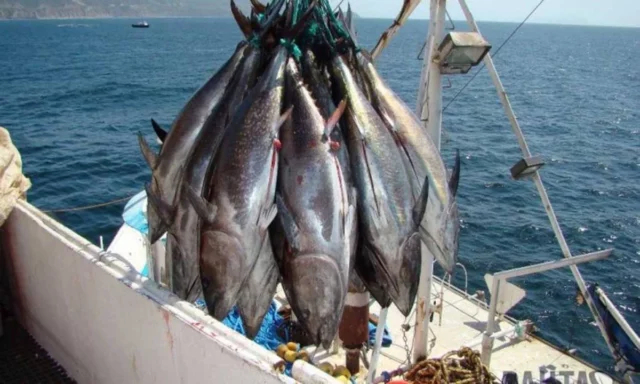Through a training course and with the use of virtual reality technologies, about 30 officials, including personnel from the Public Ministry, judges, prosecutors, personnel from the Judicial Investigation Agency (OIJ), the National Coast Guard Service (SNG) and INCOPESCA , were trained in a specialized course on illegal fishing, organized by the Costa Rican Federation of Tourist Fishing (FECOP).
The objective was to raise awareness and strengthen the training of personnel in the proper application of the Fisheries Law and the international and national regulatory framework, to combat illegal, unreported and unregulated fishing (IUU fishing) and thus contribute to that the crimes committed are punished and the incidence of crime and impunity are reduced.
“Illegal fishing is a problem of great proportions at the global level, which destroys populations of important fishing resources throughout the world, non-target species, marine habitats, in addition, it constitutes an undermining of conservation regulations and the efforts of countries to recover their fisheries and manage them sustainably,” said FECOP Science Director, Moisés Mug.
Virtual reality, a new technological ally
With the support of Gensler’s Metaverse department, an interactive platform was developed to carry out a practical exercise of interdiction of a longline vessel, suspected of carrying out illegal fishing activities by avatars of the National Coast Guard Service.
Through virtual reality, the participants were able to board the commercial vessel called “El Velásquez”, where they were asked to collect evidence and proof and carry out another series of tasks.
One of the purposes of using this technology and involving judges, prosecutors, OIJ investigators, as well as other actors involved in different stages of the processes related to illegal fishing activities, was to make them aware of the dangers and complexity of this task. and that they become familiar with the terminology, concepts and the collection of signs of illegal fishing in conditions similar to those that occur in reality.
“This course has been innovative in combining theory with the implementation of practical exercises using virtual reality technologies, its incorporation gives us the opportunity to generate experience in places and conditions where we do not have resources, this can mean a reduction in costs in future training , for example, when it is necessary to invest in a real boat or move personnel to the coasts, which on many occasions is an impediment”, stated the environmental prosecutor, Alejandro Alpízar.
For his part, the deputy environmental prosecutor, José Pablo González, stressed that “the initial reactions have been very positive” and that this tool has enormous potential for training and training in the future.
“The intention, for a second phase of the project, is to improve this exercise module with virtual reality, diversifying the scenarios of suspicious vessels, particular cases of illegal fishing, and the complexity and difficulty of the exercises, seeking to take advantage of the full potential of this tool to combat this problem”, he added.
This activity arises within the framework of a collaboration agreement that FECOP maintains with the National Coast Guard Service (SNG) of the Ministry of Public Security, and the participation of the Environmental Prosecutor of the Public Ministry of Costa Rica.

It is estimated that the illegal fishing trade means some USD $144 billion globally and produces losses of around USD $23 in its impacts, each year, according to the director of Science of FECOP.
In the country, there are situations of illegal fishing by foreign vessels, in protected or closed areas and of protected species. Additionally, the illegal fishing of sailfish by longline boats using live bait within the first 30 nautical miles of the coast, has caused a significant reduction in the abundance of populations of this species in the Pacific of Costa Rica, according to FECOP, Around 19,000 sailfish die annually due to commercial fishing, affecting the economy of tourist and sport fishing, valued at USD $520 million annually.
About FECOP
The Costa Rican Fisheries Federation is an organization that strives to create vibrant and sustainable coastal communities, where sport, artisanal, and commercial fishing groups work together to ensure that ocean resources are protected from overfishing today and to future generations. FECOP promotes through public and private partnerships sustainable fishing practices to create jobs, science, research, biology, economics, and conservation education.

